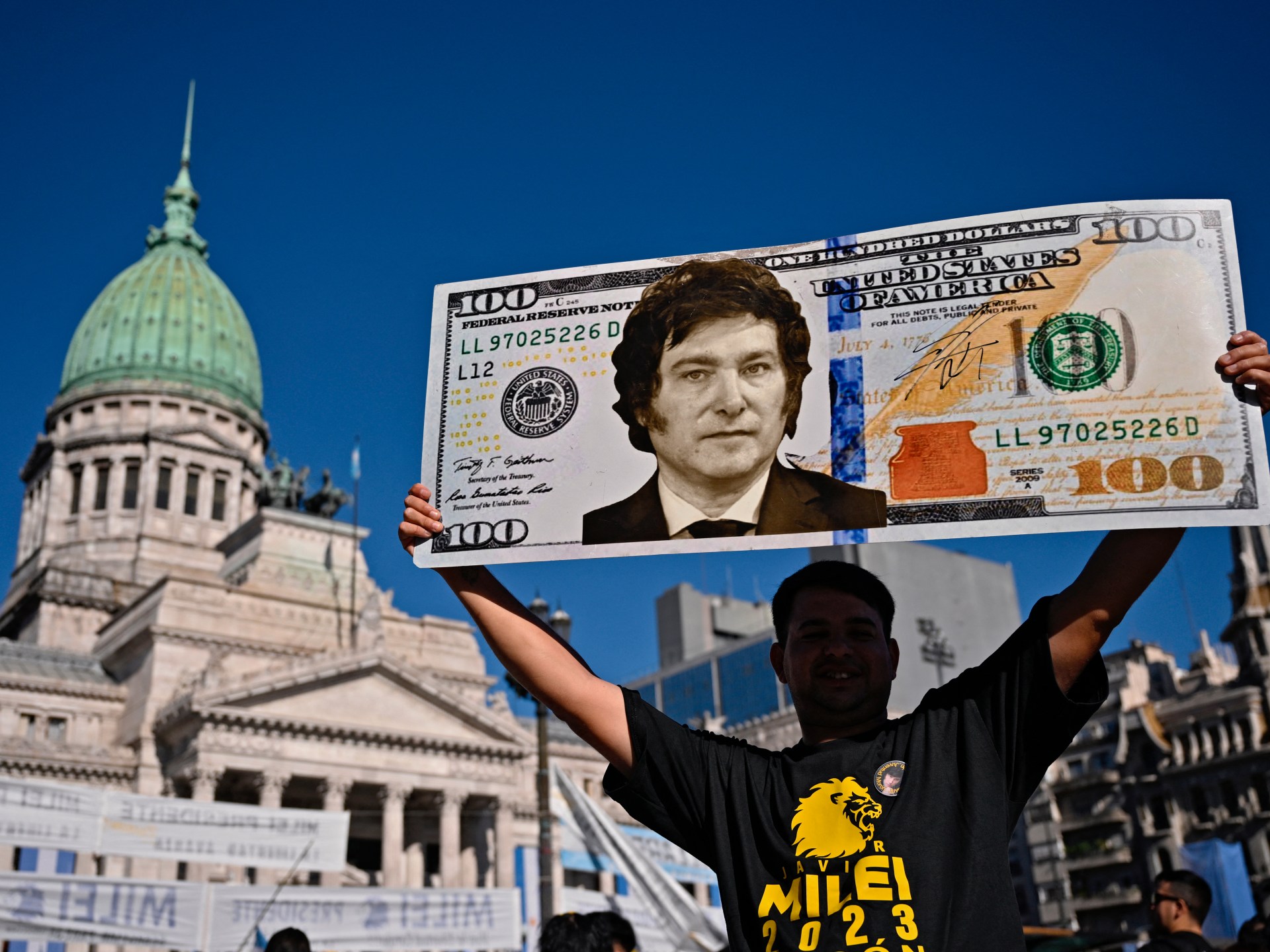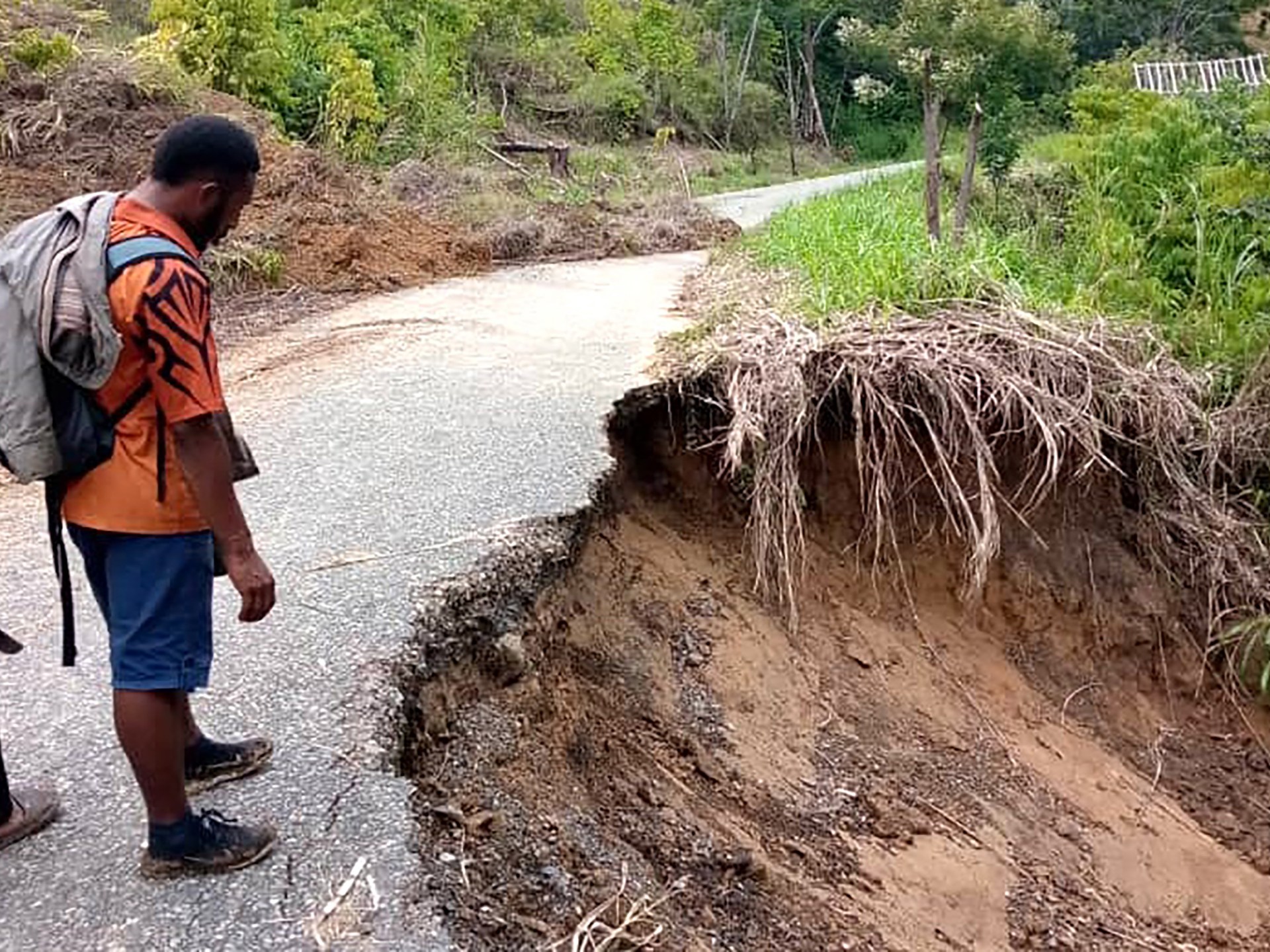Georgian parliament overrides presidential veto of ‘foreign agent bill’ | Politics News
Critics say the bill will restrict media freedom and obstruct Georgia’s chances of joining the European Union.
Georgia’s parliament has overridden a presidential veto of the “foreign agents” legislation that has fuelled Western concerns and set off weeks of street protests.
The legislature, controlled by the governing Georgian Dream party, dismissed on Tuesday President Salome Zourabichvili’s veto of the legislation that she and other critics have said will restrict media freedom and obstruct Georgia’s chances of joining the European Union.
The president now has five days to endorse the bill. If she doesn’t do so, the parliament speaker would be able to sign it into law.
The bill that was approved by the parliament earlier this month requires media, nongovernmental organisations and other nonprofit groups to register as “pursuing the interests of a foreign power” if they receive more than 20 percent of their funding from abroad.
Zourabichvili, who is increasingly at odds with the governing party, vetoed the bill on May 18. She has accused the governing party of jeopardising the country’s future and “hindering the path toward becoming a full member of the free and democratic world.”
The veto was rejected by an 84-4 vote in a contentious parliament session, during which a Georgian Dream deputy doused the leader of an opposition party with water while he spoke from the rostrum.
The government says the bill is needed to stem what it deems to be harmful foreign actors trying to destabilise the South Caucasus nation of 3.7 million, but many Georgian journalists and activists argue that the bill’s true goal is to stigmatise them and restrict debate in the run-up to parliamentary elections scheduled for October.
Opponents denounce the legislation as “the Russian law” because it resembles measures pushed through by the Kremlin to crack down on independent news media, nonprofits and activists. Critics have said the measure may have been driven by Moscow to thwart Georgia’s chances of further integrating with the West.
The bill is nearly identical to one that the governing party was pressured to withdraw last year after street protests. Renewed demonstrations again gripped Georgia as the bill made its way through parliament. Demonstrators scuffled with police, who used tear gas and water cannon to disperse them.
The EU, which gave Georgia candidate status in December, has repeatedly said the bill will be a barrier to Tbilisi’s further integration with the bloc. The European bloc stressed at the time that Tbilisi needs to implement key policy recommendations for its membership bid to progress.
Last week, US Secretary of State Antony Blinken announced that travel sanctions would be imposed on Georgian officials “who are responsible for or complicit in undermining democracy in Georgia.” He noted that “it remains our hope that Georgia’s leaders will reconsider the draft law and take steps to move forward with their nation’s democratic and Euro-Atlantic aspirations.”
The opposition United National Movement has described the bill as part of efforts by Georgian Dream to drag the country into Russia’s sphere of influence – claims it has vehemently denied Georgian Dream was founded by Bidzina Ivanishvili, a former prime minister and billionaire who made his fortune in Russia.
Anti-bill demonstrations have been held for weeks, peaking in the evening, when crowds numbering in the tens of thousands have mounted some of the biggest protests seen in Georgia since it regained independence from Moscow in 1991.
Check out our Latest News and Follow us at Facebook
Original Source







